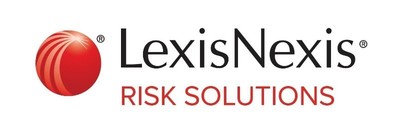 |
HONG KONG, July 30, 2018 /PRNewswire/ -- Banks and financial institutions across Asia are one of the most effective vehicles to identify and combat human trafficking in the region, according to Asia head of Financial Crime Compliance at LexisNexis Risk Solutions David Haynes, speaking today on World Day against Trafficking in Persons.

The Global Slavery Index estimated there were 45.8 million victims of modern slavery, in 2016. Most of the victims are involved in making the products we buy or harvesting the food we eat. It is estimated that there are 25 million modern slaves in Asia, 66% of whom are in forced labour.
Mr Haynes said there are close links between human trafficking, money laundering and terrorist financing offences. Human trafficking is often intertwined with organized criminal units and terrorist organizations, smuggling and bribery and corruption.
"We are finding that the private sector, particularly the manufacturing industry, is now very alert to ensuring their supply chains are free of forced labour. Many large companies are now actively screening every part of their supply chain to identify any issues," Mr Haynes said.
"As part of AML (anti-money laundering) and CTF (counter-terrorist financing) regulations we now see banks, and increasingly e-commerce companies, retailers and telecommunication companies screening for financial connections to human trafficking."
Mr Haynes said technology underpinning the financial system offered one means of helping to identify human traffickers by allowing banks and law enforcement to uncover patterns of behaviour that are common to this type of criminal.
"Linking people movement, habits and financial data through sophisticated analytic linking technology can help banks and other companies understand those networks of human traffickers, their money movement and identify those bad actors more quickly," Mr Haynes said.
In Asia Pacific, LexisNexis Risk Solutions works with advocacy groups dedicated to fighting human trafficking, including The Mekong Club and Liberty Asia.
About LexisNexis® Risk Solutions
LexisNexis® Risk Solutions harnesses the power of data and advanced analytics to provide insights that help businesses and governmental entities reduce risk and improve decisions to benefit people around the globe. We provide data and technology solutions for a wide range of industries including insurance, financial services, healthcare and government. Headquartered in metro Atlanta, Georgia, we have offices throughout the world and are part of RELX Group (LSE: REL/NYSE: RELX), a global provider of information and analytics for professional and business customers across industries. RELX is a FTSE 100 company and is based in London. For more information, please visit www.risk.lexisnexis.com, and www.relx.com.
Contacts:
Scott McFarlane
Managing Director
Teneo Strategy
+852 - 3655 0506
Scott.mcfarlane@teneostrategy.com
and
Jean Creech Avent
Director, Public Relations
LexisNexis Risk Solutions
+1 770-862-7978
jean.creech@lexisnexisrisk.com